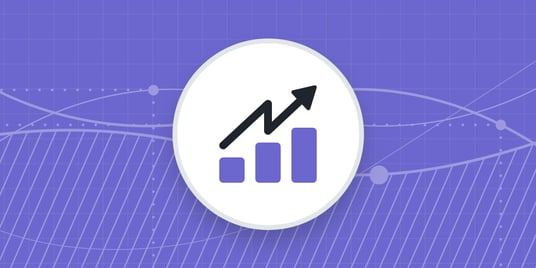Get a Free Trial
Creating, executing, and maintaining reliable tests has never been easier.
DevOps adoption has almost doubled in the past five years, with 74 percent of organizations now saying they’ve incorporated at least some aspects. As the world of software development becomes more competitive, DevOps has emerged as a clear differentiator between the innovators and the stragglers. Yet testing remains an ongoing challenge to complete implementation.
As a result, major shifts are taking place in software testing that can be broadly categorized into four trends: testing in DevOps, the adoption of quality engineering, testing with low-code test automation solutions, and upskilling on the job.
Testing in DevOps
Traditional manual testing is simply not fast enough to manage the pace of DevOps, which can result in teams deploying new code up to four times per day. According to a recently released survey from GitLab, 84 percent of developers said their team has accelerated the pace of development, and roughly one in five say they’ve increased the rate of deployment by a factor of 10.
To keep up with this new world of high-velocity product development, quality leaders are completely rethinking their testing strategy to move testing earlier in the development pipeline, integrate new technologies, and help their teams build their skills on the job. Their efforts are producing a new form of testing that harnesses the expertise of manual testers with AI and machine learning. Testing is shifted left in the development pipeline so that defects are caught earlier and engineers are engaged in quality as soon as they begin writing new code. This also allows QA to expand the variety of tests to include API, mobile, and cross-browser testing so that the entire user experience is validated well before customers are using a new feature or product. As DevOps adoption expands and matures, testing in DevOps is a critical frontier for improving product velocity in tandem with quality.
Quality Engineering
As testing in DevOps matures, quality advising is evolving into quality engineering, a discipline that incorporates data-driven testing into the end-to-end customer experience and drives organizational growth. For testers, the shift to quality engineering is a two-fold evolution that involves moving into a quality advisor role as well as leading the adoption of test automation throughout the DevOps pipeline.
When testing is more evenly distributed throughout the software development life cycle, testers have the opportunity to partner with developers, customer success, and product managers to integrate quality into the entire organization. Quality teams take the lead on coaching the organization on test automation, connecting customer feedback to product development, and optimizing the user experience to reflect actual customer needs.
Low-Code Test Automation
Even by software standards, testing is transforming rapidly. Many quality professionals find themselves making the leap from pure manual testing to using cutting-edge tools like AI and machine learning as a regular part of their role. To manage the change, testers are turning to low-code test automation solutions to ensure that everyone is able to contribute to an organization’s quality strategy.
Few people understand the product and the user experience better than manual testers. Since they spend the bulk of their time navigating every aspect of the product from the customer’s perspective, they’re a valuable - though often underutilized - resource for organizations that compete based on their user experience. Low-code test automation solutions bridge the gap between manual and automated testing by making it possible for all team members, regardless of coding experience, to create and run automated tests. Even QA teams with no test automation experience have found that the next generation of low-code test automation tools enable them to build complex end-to-end tests.
Upskilling to Quality Engineering
Similarly, testers are taking on a more important and wide-ranging role in DevOps as the ambassadors and advocates for the customer throughout the entire SDLC. As QA evolves, the skills needed to manage this role are quickly expanding to include soft skills like communication and critical thinking as well as technical skills. Though quality professionals are used to learning quickly, the simplest and most effective way for them to adapt is embracing tools and processes that help them learn on the job. Strategies like paired testing, where team members with different skills work together to develop a testing strategy, and “office hours” make peer-to-peer learning an integrated part of development for the entire team. Adding tools designed for learning, such as low-code test automation, also make it possible for quality professionals to expand their technical knowledge without missing a beat in DevOps.
The Future of Testing
As DevOps continues to expand, software testers will take on greater levels of responsibility and importance. With solutions like mabl, which is designed to make advanced test automation accessible with low-code, manual and automated testers alike will be able to expand their skills on the job, advise the rest of the development pipeline on quality, and help organizations improve product velocity without sacrificing quality.
The new world of QA demands solutions that adapt and scale quickly with your organization. Join mabl's free two-week trial to see what the future of quality looks like for your team.






